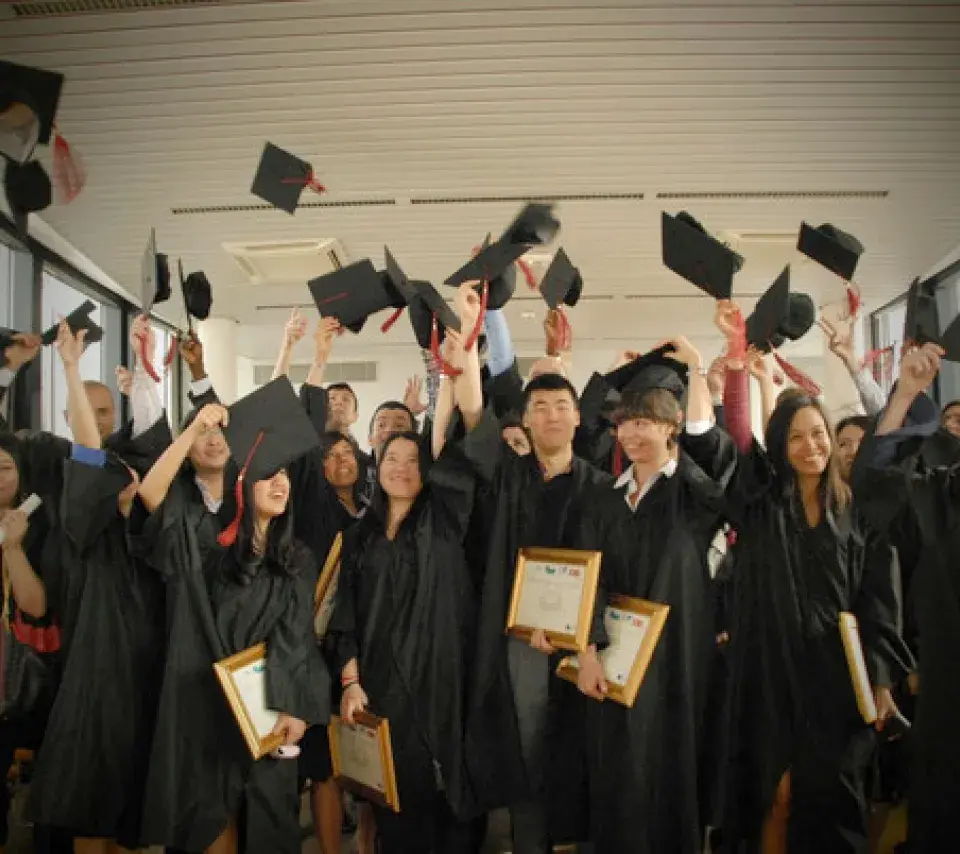Why QEM

Many recent financial events like the 2008 financial crisis, the following Eurozone debt crisis, and the credit crunch among others demonstrate that the cutting edge in economic research lags behind the world economic realities, leaving policymakers in uncharted waters. This lag emphasizes the need for economists with engineering skills: with the ability to master economic theory, practice, and implementation techniques, acquire knowledge from some related fields and understand advanced research topics to design integrated answers.
A QEM graduate with those qualifications will be able to:
- bridge research and practical issues and efficiently solve real-world problems
- fit the specific needs of multiple sectors including international organizations, NGOs, government, finance, insurance, and industry
1. Course Content
In attempting to tackle the training needs to be dictated by the economic challenges mentioned above, the study program of Erasmus Mundus Joint Master QEM (EMJMD) will provide to the Graduates: (1) Both research and professionally oriented training, prepare students equally for research or for an economic engineering career in a new curriculum; (2) A critical understanding of the scientific concepts and methods they have learned in the curriculum; (3) The capacity to work independently in complex situations, and develop and implement ideas of their own.
Graduates will be able to analyze economic and econometric problems and conduct theoretical and empirical investigations with a high degree of complexity.
Erasmus Mundus Joint Master Degree QEM (EMJMD) program will counterbalance the traditional separation between applied and theoretical academic tracks by preparing students simultaneously for research and economic engineering careers, with interactions all across the economics curriculum. Students who aim for a professional career will then receive research-oriented training, while students who want to continue with a Ph.D. will also acquire engineering skills.
2. International Dimension
The international dimension of the Master Economics QEM program, provides students exposure to different European cultures and connection to a worldwide network through the Master's Economics programs at the campus located in Paris in France, Louvain-la-Neuve in Belgium, Barcelona in Spain, Venice in Italy, and Warsaw in Poland. Partner Universities by joining forces and exploiting reciprocities are jointly offering a richer and more versatile curriculum than any of the individual Partners alone. The EMJMD QEM program is thus able to offer a single innovative package, using all of the best practices of the Partner universities.
3. Mobility
Research/educational training in economics tends to be small, with the obvious consequence that they tend to specialize in somewhat narrow domains. Building a network allowing the mobility of students generates an environment large enough to create and benefit from increasing returns to scale, with cross-fertilization and important spillovers across various fields related to Economics. Moreover, mobility between countries creates another dimension of knowledge and education, that students obtain through immersion in different cultural environments.
4. Program Assistance
Administrative staff provide general assistance to students including airport pick-up and help with locating suitable housing and furnishings. The Application Help Desk staff are happy to answer questions regarding visas and immigration status, work permits, cultural life, and Optional Practical Training.
5. Placement
The Employability of QEM graduates is highlighted by their diverse career paths and continued academic pursuits. With the support of the program's extensive network, 175 alumni have secured positions in renowned companies worldwide, including Goldman Sachs, McKinsey & Company, and The World Bank. Additionally, 186 graduates have pursued doctoral programs at esteemed institutions such as Stanford University, University of Cambridge, and Sciences Po. For more details click here.
6. Networks
The network for QEM students and alumni is robust and dynamic, fostering connections and collaboration long after graduation. Through initiatives such as the QEM Students and Alumni Association, individuals remain engaged with the program, contributing to its ongoing improvement and maintaining relationships with fellow graduates. Platforms like the EMJMD QEM Facebook Group provide opportunities for networking and professional development, while the Erasmus Mundus Students and Alumni Association serves a broader community, promoting collaboration and excellence in international education. Additionally, the QEM Linkedin page offers a platform for ongoing connection and the potential for career opportunities. The Annual Meeting of the Association, held as part of the QEM Summer Meeting, further solidifies these connections, providing a dedicated time for interaction and engagement among current students and alumni For more details click here.
7. Testimonials
Discover firsthand testimonials from QEM program alumni, delving into their transformative journeys and the invaluable skills acquired through the program. Click here to explore their inspiring stories.
8. Ambassadors
Meet our esteemed Alumni Ambassadors, distinguished QEM graduates who serve as mentors on your academic journey. Whether you're considering the program, seeking community engagement, or advancing your studies within QEM, our ambassadors offer invaluable insights and support. Connect with them for personalized guidance and explore precise details about our QEM ambassadors by clicking here.